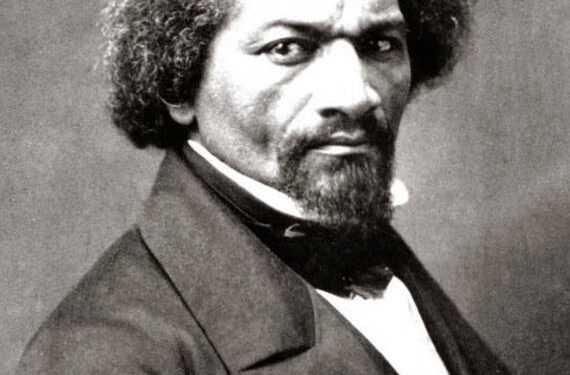Frederick Douglass of a Literary Luminary in the Abolitionist Movement
Frederick Douglass of a Literary Luminary in the Abolitionist Movement-What literary movement was Frederick Douglass in?. What role did Frederick Douglass play in the abolitionist movement quizlet?, What is a literary abolitionist?,Frederick Douglass stands as a monumental figure in American history, celebrated not only for his pivotal role in the abolitionist movement but also for his profound impact on American literature. Born into slavery, Douglass transcended the shackles of his early life, emerging as a formidable orator, prolific writer, and unwavering advocate for civil rights. This essay delves into Douglass’s life, influences, and enduring legacy in American literature, shedding light on the convergence of his literary prowess and his relentless pursuit of freedom and equality.
Early Life and The Power of Education
Frederick Augustus Washington Bailey, later known as Frederick Douglass, was born into slavery in Talbot County, Maryland. His early years were marked by the harsh realities of enslavement, including the separation from his mother and the denial of formal education. Douglass, however, defied oppressive laws to teach himself to read and write, recognizing the transformative power of education. This pursuit of knowledge became a driving force in his quest for freedom and shaped his advocacy for literacy as a cornerstone of African American emancipation.
Escape to Freedom and Abolitionist Activism
In 1838, Douglass successfully escaped slavery, reaching New York City. His journey to freedom propelled him into the heart of the abolitionist movement, where his eloquence and compelling narrative garnered attention. Douglass became a prominent speaker for the American Anti-Slavery Society, captivating audiences with his powerful oratory and sharing the vivid account of his escape. His ability to articulate the dehumanizing effects of slavery and his personal narrative made him a compelling voice for the abolitionist cause.
Literary Contributions
Narrative of the Life of Frederick Douglass, an American Slave (1845):
Douglass’s first autobiography, “Narrative of the Life of Frederick Douglass, an American Slave” (1845), is a seminal work in American literature. The narrative vividly recounts his life in slavery, his daring escape, and his relentless pursuit of freedom. With remarkable clarity and insight, Douglass exposed the brutality of slavery and challenged prevailing racial stereotypes.
Also Read-
- Discuss the theme of freedom in Frederick Douglass’ Narrative of the Life of Frederick Douglass
- Theodore Dreiser of a Pioneering American Literature
- Carl Sandburg of America’s Soul and Poet of the People
My Bondage and My Freedom (1855):
“My Bondage and My Freedom” (1855) continued Douglass’s narrative, delving deeper into the complexities of his life and the broader issues of race and freedom. This work provided a nuanced exploration of his evolving views on abolition, religion, and the quest for equality.
The Heroic Slave (1853):
Venturing into fiction, Douglass authored “The Heroic Slave” (1853), a novella inspired by the true story of Madison Washington’s slave rebellion. Through this work, Douglass used narrative power to explore themes of resistance, courage, and the innate desire for freedom.
Oratory and Speeches
Douglass’s influence extended beyond the written word; his oratory skills made him a forceful advocate for the abolitionist cause. Notable speeches like “What to the Slave is the Fourth of July?” (1852) showcased his ability to articulate the contradictions between the ideals of freedom and the stark reality of slavery. Douglass’s speeches resonated not only with abolitionist audiences but also with those questioning the morality of slavery.
Literary Style and Rhetorical Techniques
Narrative Technique:
Douglass’s autobiographical works featured a straightforward narrative style that rendered the harsh realities of slavery accessible to a broad audience. Intertwining his personal experiences with a broader critique of slavery, his narratives were both personal and political.
Rhetorical Strategies:
Douglass skillfully employed rhetorical strategies, including ethos, pathos, and logos, in his speeches and writings. Establishing credibility (ethos) through his personal experiences, appealing to emotions (pathos), and presenting logical arguments (logos) against slavery were integral to his persuasive approach.
Persuasive Appeals:
Douglass’s writing and oratory were marked by persuasive appeals to the moral conscience of his audience. Using vivid descriptions of the dehumanizing effects of slavery, he sought to evoke empathy and instill a sense of moral responsibility among his listeners and readers.
Changing Perspectives and Political Activism
As Douglass’s perspectives evolved, so did his commitment to broader issues of civil rights and political equality. During the Civil War, he advocated for the enlistment of African American soldiers in the Union Army and continued pressing for the abolition of slavery. Post-war, Douglass played a key role in the Reconstruction era, advocating for civil rights and suffrage for African Americans.
Legacy and Impact
Emancipation and Civil Rights:
Douglass’s contributions to the abolitionist movement and his influential literary works played a pivotal role in shaping the trajectory toward emancipation and civil rights. His narratives and speeches illuminated the moral imperative of ending slavery and laid the groundwork for subsequent movements for equality.
Literary and Social Influence:
Douglass’s impact extends beyond the realms of literature and activism. His works continue to influence discussions on race, freedom, and human rights. The power of his words transcends time, resonating in ongoing dialogues about social justice and equality.
Education as Empowerment:
Douglass’s emphasis on education as a means of empowerment remains a lasting legacy. His own journey from slavery to literacy serves as an enduring testament to the transformative potential of knowledge, inspiring generations to come.
Frederick Douglass’s indomitable spirit, eloquence, and literary prowess left an indelible mark on American literature and the fight for justice. His legacy endures as a testament to the power of words in the pursuit of freedom, equality, and the enduring quest for a more just society.














